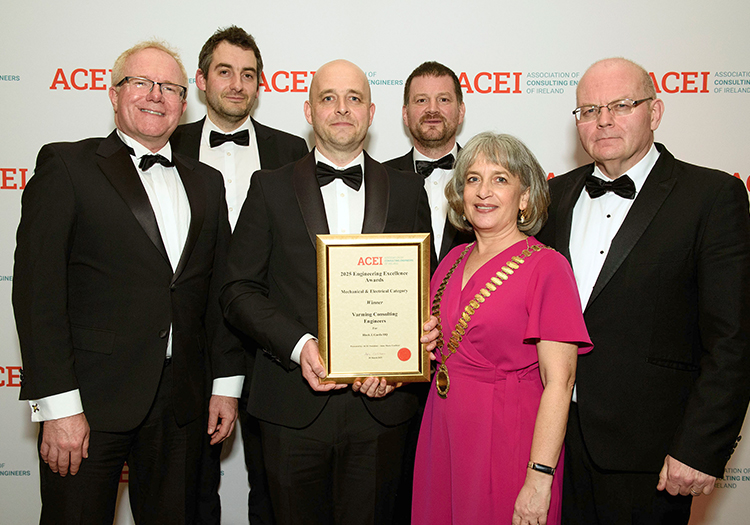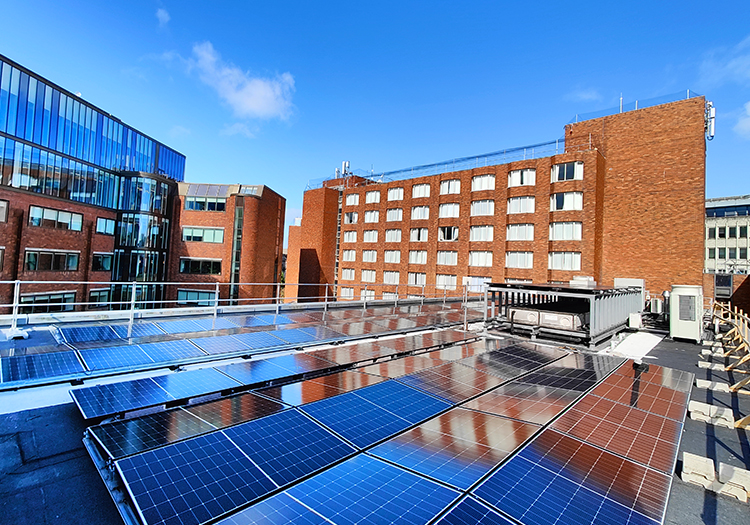
EV Charging Considerations for Commercial Buildings
As the demand for electric vehicles (EVs) continues to grow, EV charging considerations for commercial buildings have become increasingly vital. Integrating EV charging infrastructure into commercial properties is essential for supporting the shift towards sustainable transportation. At Varming Consulting Engineers, we specialise in providing expert solutions for installing EV charging systems that ensure an efficient, scalable, and future-proof infrastructure.
Understanding the Infrastructure Requirements
When considering the installation of EV chargers, several factors require careful evaluation. First, we need to assess the electrical capacity of the building. EV chargers consume a considerable amount of power, so determining whether the existing infrastructure can support multiple charging points is crucial. In some cases, upgrading the power supply may be necessary. This could involve installing additional transformers or upgrading distribution boards. As design consultants, we work closely with clients to assess these requirements, ensuring that the infrastructure can support both current and future charging needs.
Additionally, we must consider the number and type of chargers needed. Different EV chargers offer varying speeds and capacities, so selecting the appropriate models based on the building’s usage patterns is essential. For example, fast chargers are ideal for high-turnover locations, while slower chargers suit areas with longer dwell times. By balancing the number and type of chargers, we can optimise efficiency and reduce congestion. Our team also provides tailored recommendations to ensure that each building receives the most suitable solution.
Compliance with Regulations and Standards
Beyond infrastructure, compliance with local regulations is another key consideration. Many countries, including the UK and Ireland, have introduced stringent requirements for EV charging infrastructure. These regulations aim to promote sustainability and reduce carbon emissions. Consulting engineers must ensure that charging systems meet these requirements. This may involve integrating energy management systems, placing chargers in designated locations, and adhering to safety standards. We help clients navigate these complex regulations, ensuring every installation complies fully.
Furthermore, building services engineers must consider how the charging stations interact with other systems within the building. These include lighting, HVAC, and building automation systems. Efficient integration of these systems is vital for optimising energy consumption, reducing costs, and preventing electrical overloads. At Varming Consulting Engineers, we guide the seamless integration of EV chargers with existing building services. This maximises efficiency while minimising disruption to other systems.
Future-Proofing the Installation
Looking to the future, it is crucial to future-proof EV charging infrastructure in commercial buildings. As the number of electric vehicles increases, the demand for charging stations will grow. To accommodate this, we may need to install additional charging points or ensure that the building’s electrical system can be upgraded with ease. Our team of design consultants collaborates with clients to create scalable solutions that adapt as the building’s needs evolve. This proactive approach ensures that your infrastructure remains relevant as technology advances.
Conclusion
In conclusion, EV charging considerations for commercial buildings are multifaceted yet essential for supporting sustainability and operational efficiency. With the right expertise, integrating EV charging systems can be straightforward and effective. Varming Consulting Engineers offer comprehensive services in designing and installing EV charging infrastructure. We ensure compliance with regulations, optimise energy efficiency, and future-proof your installation. If you are planning to incorporate EV chargers into your commercial building, contact our team of consulting engineers today to discuss your project. For more information, visit our website.

